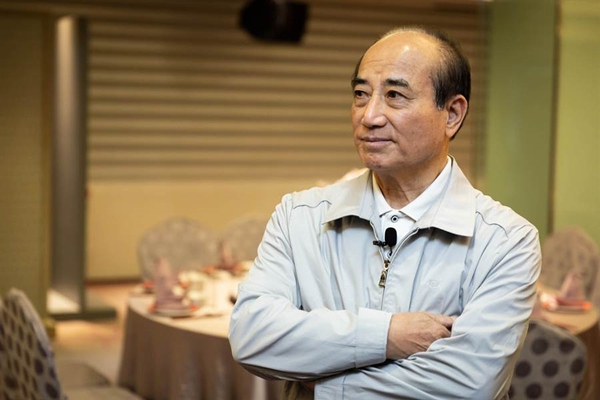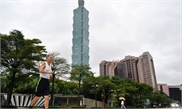KMT cancels delegation to Straits Forum

Wang Jin-pyng Photo: Chinatimes.com
The Kuomintang (KMT), an opposition party in the island of Taiwan, announced on Monday that it will not send a delegation to attend the Straits Forum that is scheduled to be held in Xiamen, Fujian Province, because it felt "insulted" after a mainland TV news program said the KMT is asking the mainland for peace amid the intense cross-Straits situation.
Originally, the KMT planned to send the former vice president of the party - Wang Jin-pyng - to lead the delegation to the forum, which will be held by the Taiwan Affairs Office of the State Council on Saturday.
However, after the KMT announced its decision, a news program of China Central Television (CCTV) reported the development with a Chinese headline on Thursday saying "Taiwan Straits on the brink of war, this man (Wang) will come to 'ask for peace' (in Chinese: Qiuhe)." The headline had a significant impact on public opinion within the island, as many people considered it an insult.
Later, the mainland's Taiwan Affairs Office on Friday said in a statement that it welcomed the KMT's decision, noting that "the two sides of the Taiwan Straits are families, so we should pay joint efforts to safeguard the peace of the Straits and contribute more to boosting mutual understanding and mutual-trust."
Li Hong, an anchorwoman of the CCTV news program, also explained that "Qiuhe" means "seeking peace", which was not meant to insult the KMT at all, but the party and the media of the island widely claimed that "Qiuhe" means "begging for peace" and the pro-separatist Democratic Progressive Party (DPP), as well as other pro-separatist groups in Taiwan, are using the incident to hype anti-mainland sentiment.
But in fact, the news program mainly focuses on interviews with scholars and experts from both Taiwan and the mainland, who analyze news about cross-Straits affairs, so it represents very diverse opinions from both sides. The welcoming attitude held by the Taiwan Affairs Office of the mainland has never changed.
Li Fei, a professor at the Taiwan Research Institute at Xiamen University in East China's Fujian Province, told the Global Times that when the new president of the KMT Chiang Chi-chen was elected in March, he intended to abandon "the 1992 Consensus" and make the KMT more localized and less pro-reunification, so at that time, "the KMT had no foundation to make any formal exchange with the mainland."
The Straits Forum in Xiamen is a platform for civilian and people-to-people exchanges, mainly in the business and cultural circles, rather than a political or security forum. It does not not intend to hold any "peace negotiations" at all, but since the KMT wanted to come and has vowed to return to "the 1992 Consensus," the Taiwan Affairs Office expressed its welcome on Friday, the professor noted.
Li Xiaobing, an expert on Taiwan affairs at Nankai University in Tianjin, said the KMT is falling into a trap set by the DPP, because the DPP doesn't want any communication with the mainland, so it used the CCTV item and distorted the news headline into an official insult, to hype the anti-mainland sentiment among the public of the island.
"Within the KMT, party members have no consensus on sending a delegation, and KMT president Chiang is also reluctant to send a delegation, since he wants the party to stay away from the mainland. So the CCTV case is just an excuse for pro-localization forces within the KMT to force the leader to cancel the visit," Li Xiaobing noted.
Chinese mainland analysts said that whether the KMT decides to attend or not, its decision won't affect the cross-Straits situation too much, as the KMT is not a ruling party, and the mainland bears no loss at all.
However, the KMT has abandoned a chance to make itself a communicator between the two sides of the Straits amid the intense situation, and it will lose its unique political advantage when competing with the pro-separatist DPP in the future.



